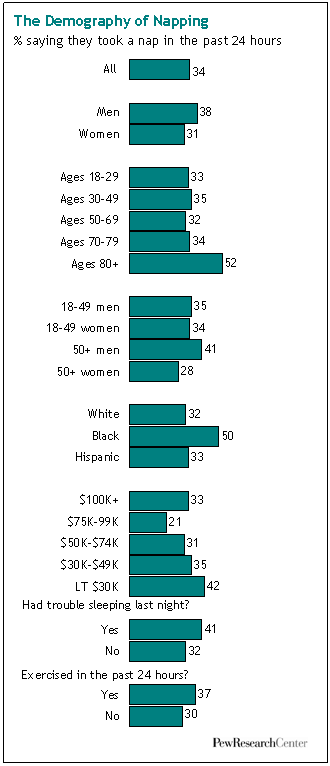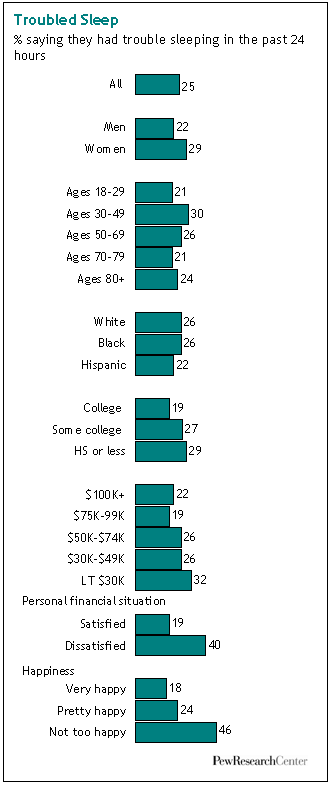Not Enough Sleep
Teens Running Out of Time for Rest
February 8, 2018
Beep, beep, beep. Snooze. Beep, beep, beep. Snooze. Beep, beep, beep…
This is what a morning looks like for the average teenager waking up for school. After a late and restless night, they face the morning paralyzed by the idea of getting out of bed. For teens, including those at Carroll High School, sleep is a common problem. Many teens have trouble getting the necessary amount of sleep because of the biological change in their sleep patterns, the amount of homework they have to complete, and distractions, like their phones, keeping them up. However, it is important for teens to find solutions on how to get more sleep, as their physical and emotional well-being is on the line.
“Last night, I got seven hours of sleep, which is my usual,” Haylee Leins, a current CHS Freshman said. “By fifth period at school, though, I get so tired that my eyes start to burn.”
According to the National Sleep Foundation, teens require anywhere from eight to 10 hours of sleep each night to function effectively. Nevertheless, parents of teens can grow bothered by their child’s constant desire to sleep even though, biologically, it is a vital factor to their physical and emotional health.
 Why Teens Need Sleep
Why Teens Need Sleep
Nationwide Children’s Hospital reported, “After puberty, there is a biological shift in an adolescent’s internal clock of about two hours, meaning that a teenager who used to fall asleep at 9 p.m. will now not be able to fall asleep until 11 p.m. It also means waking two hours later in the morning.”
Consequently, waking up at 6 a.m. every day is not suitable for teens because that would mean that they only receive about seven hours of sleep per night instead of the recommended eight to 10 hours. Therefore, teens really do need to sleep in later and it should not be overlooked as laziness.
“Brains don’t fully develop until the age of 25. Therefore the need for a healthy diet and quality sleep is higher prior to that age of completion,” said Paige Clingenpeel, Carrol High School’s SAP counselor.
This could also explain why adults over the age of 25 do not need as much sleep— because their brains are not working as hard to develop like teen brains are. Since teen brains are still growing, an additional amount of sleep is required than that of an adult.
How Much Sleep Teens Get
While physically and emotionally sleep is essential to a teen’s wellbeing, many are deprived of it. According to the National Sleep Foundation, only about 15 percent of teens reported getting the recommended eight to 10 hours of sleep per night.
Similarly, in a study of 25 girls and 25 boys, nearly three fourths of CHS Freshmen reported getting six to seven hours of sleep each night, instead of the recommended amount.
In terms of gender, within the CHS Freshmen class it seems more boys than girls get the recommended amount of sleep per night. This difference in amount of sleep between boys and girls could be caused by the factors that keep them awake.
Reasons for a Lack of Sleep
A poll of 25 CHS Freshmen girls reported that most of them do not get enough sleep because of homework. Furthermore, technology distractions like phones are the second leading cause of a lack of sleep, with sports and extracurricular activities coming in last.
“I stay up on FaceTime, so that’s why I don’t get enough sleep,” said Haylee. “Also, Snapchat— I just watch people’s stories over and over again. There is so many people on Snapchat that the stories are overwhelming.”
Not only does social media affect sleep hours, but regular school functions can take their tolls.
 “Last night I got like seven hours of sleep because I had a basketball game and then I had a lot of homework that I had to finish,” said Freshman Evy Murphy.
“Last night I got like seven hours of sleep because I had a basketball game and then I had a lot of homework that I had to finish,” said Freshman Evy Murphy.
On the other hand, 25 percent of CHS Freshmen boys reported that the leading cause of sleep deprivation for boys was technology, like their phones, keeping them up at night. Homework came in second, with sports and extracurricular coming in last for the reasons for a lack of sleep.
While these factors are a part of being a teenager and high schooler, the lack of sleep they cause can come with destructive effects.
Academic Effects
“Healthy sleep contributes to body development/growth and repairing/healing body and mind. Without quality sleep, teen brains slow down mentally, and teen body’s become physically unhealthy and prone to illnesses,” Clingenpeel said.
Therefore, as teens get less and less sleep, attendance rates also go down because of the increased likeliness for sicknesses to develop. Furthermore, beyond illnesses, teens can simply be too tired to get out of bed, causing them to miss school. This decrease in attendance can directly affect their academic performance because not physically being in school can make learning more of a challenge.
On the same topic of academic performance, The National Sleep Foundation reported that if teens don’t get sufficient sleep, it can limit their ability to learn, listen, concentrate and problem solve.
“Last night I had seven hours of sleep because I had an after school activity. When I don’t get enough sleep, I feel so tired and throughout the day I have times where I zone out,” said Eli Coray, a CHS Freshman.
It can also cause students to forget important information like names, numbers, or even their homework. These factors can then affect their grades and test scores. High school is an essential part of a teen’s life, as it is the pathway to their future career. Receiving low test scores and overall grades can crumble a student’s aspirations for their future career. Thus, it is vital for students to be sleeping the recommended eight to 10 hours each night.
As a result of a lack of sleep, falling asleep in class seems to be a problem at Carroll High School. About 27 percent of CHS Freshmen reported falling asleep in class at least once this semester.
“I don’t let them,” Mrs. Darlene Lankenau said. Teachers make sure to keep students awake in an attempt to decrease sleeping in class.
Effects Beyond Grades
A lack of sleep also causes aggressive behaviors, negatively affecting the relationships teens value, including friends, love interests, and family members. As teens become young adults, they begin to discover who they are through the people they hang out with. The loss of these relationships due to sleep deprivation can impair their self-discovery.
As teens suffer from sleep deprivation, weight gain from eating unhealthy foods, alcohol effects, and addiction all heighten. Teens are already faced with peer pressure when it comes to drugs, alcohol, and other risky behaviors that the lack of sleep only makes the affects worse. Along the same lines, some teens become so pressed on receiving sufficient sleep that they get into drugs in order to stay awake, only making their situation worse. Staying away from these substances and behaviors can help diminish the effects of a lack of sleep.
Finally, another major effect of sleep deprivation for teens is driving drowsy. Many students drive themselves to school. A lack of sleep can impair their driving and cause them to be more prone to accidents, putting the safety of students and the safety of those around them at risk.
The National Highway Traffic Safety Administration reported that an estimated 100,000 police reported crashes each year are mainly a result of drowsy driving. These crashes result in more than 1,550 deaths and 71,000 injuries. Young adults driving home from school, work, and afterschool activities greatly contribute to these numbers. Receiving the sufficient amount of sleep could significantly diminish these totals, saving the lives of many others.
While the countless effects of sleep deprivation can play a toll on a teen’s wellbeing, there are solutions to help minimize a lack of sleep entirely and ensure the recommended eight to 10 hours of sleep.
Sleep Solutions
First, as previously mentioned, the shift in a teen’s biological clock makes it hard for them to fall asleep before 11 p.m. Consequently, when the morning comes, it can be hard for them to get out of bed for school. One way that schools, including Carroll High School, are combating this shift is by altering the start times of school to one hour later. This way students have the opportunity to sleep in one extra hour to make up for staying up later than they used to before the biological shift occurred. As a result, shifting school hours can improve attendance and academic performance because students will be less tired and more willing to make it to school to begin with.
Additionally, one solution, although it may be hard for some teens to hear, is to maintain a consistent sleep schedule, even on the weekends. For teens especially, it is tempting to sleep in late on the weekends to make up for lost hours of sleep during the week. However, all this does is mess up their sleep schedule. Consistently going to bed at the same time each night trains the body when it is time to rest, increasing one’s quality and amount of sleep.
Another solution that may seem obvious, but often gets overlooked is to make sleep a priority. As illustrated in the poll taken of CHS Freshmen, many of them stay up late on their phones on social media, Netflix, YouTube, and more. When technology distractions, like phones, are put down, it can allow for students to get more sleep. For some, the very light emitted by screens on laptops, phones, etc. activates the brain—the very opposite direction of getting sleep. Therefore, while it may be difficult for teens to accept, it might be wise to refrain from phone usage an hour before bed.
Furthermore, students can feel like staying up late and studying for a test the following day is for their benefit, when that is not always the case. Staying up later and sleeping less results in students having less focus and scoring poorly on tests. Therefore, balancing studying and sleeping is important to be a successful student.
Sufficient sleep, although very important to teens, can be troublesome for them to achieve. Between distractions like their phones, extracurricular activities, sports, homework, and the biological shift in their sleep cycle, it can be hard to maintain. The effects of sleep deprivation for teens like an increase in the likeliness for illnesses, a decrease in academic performance, driving drowsy, and the loss of relationships due to negative moods can be destructive to their lives. Therefore, finding solutions like a consistent sleep schedule and putting away technology can benefit many different aspects of a teen’s life. Maybe then when their alarm clock rings at six a.m., the snooze button won’t even have to be pressed…
“When I wake up in the morning, I don’t want to go to school,” said Freshman Evy Murphy. “I never know how much longer I can stay awake and stay focused.”
http://www.pewsocialtrends.org/2009/07/29/nap-time/

